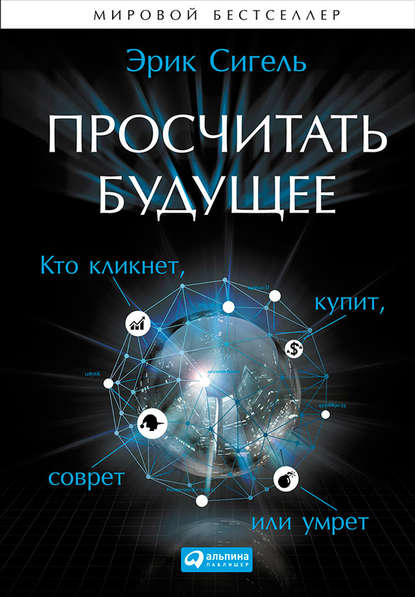Evocative Coaching
Книга Tschannen - Moran Боб посвящена разговору о том, как улучшить школы, но разговор о том, что делать в школах – это проблема. Модель разговора Evocative Coaching предлагает простой, но глубокий способ изменить это. Используя подход, основанный на ценностях силы и ненарушимости, модель Evocative предлагает методы, которые могут использоваться на уроках.
Эта книга — серьёзный призыв пересмотреть то, как обсуждаются школьные вопросы улучшения. К сожалению, характер таких обсуждений часто приводит к негативным последствиям. Предлагая другой подход к повышению эффективности работы школы, авторы этой книги Боб и Меган Тшаннен-Моран делают акцент на работу с учителем, стремятся избегать обвинений и опираются на сильные стороны сотрудников. Это происходит при помощи четырёх ступеней — «Рассказывание историй», «Сопереживание», «Исследовательское мышление» и «Проектирование», которые изложены в отдельной главе с мощным иллюстративным материалом и вопросами, стимулирующими последующее размышление. Данная книга объединяет лучшие научные исследования и мудрость в сфере образования и профессионального коучинга. Авторы предлагают простой, но глубокий путь создания новых разговоров в стенах школы на темах «Рассказывания историй», выражения «Сочувствия», «Восхищённого исследования» и «Проектирования». Это процесс, который выходит за рамки старых способов мышления, действия и бытия. Эта вдохновляющая философия обновляет любовь к улучшению работы образовательных учреждений, осуществляя это в ходе одного разговора за раз. Когда тренеры: — предоставляют учителям всё своё полное и безмятежное внимание; — принимают и признают учителей такими, какие они есть, не обвиняя их; — побуждают учителей принимать на себя ответственность за собственное обучение и рост; — дают возможность учителям говорить больше, чем делают тренеры; — вселяют в учителей веру в позитивную ценность их опыта; — обнаруживают и используют сильные стороны учителей для борьбы с вызовами и преодоления препятствий; — переформулируют трудности и вызовы как возможности для обучения и роста; — приглашают учителей находить возможности и искать ответы для себя; — ведут диалоги с учителями об их высоком предназначении их учительской деятельности; — раскрывают естественную готовность учителей взаимодействовать с коллегами и учениками; — помогают педагогам разрабатывать персональные планы профессионального роста; — поддерживают учителей в создании новых идей и применении нестандартных решений; — сохраняют позитивный, энергичный и светлый настрой.
Электронная Книга «Evocative Coaching. Transforming Schools One Conversation at a Time» написана автором Tschannen-Moran Bob в году.
Минимальный возраст читателя: 0
Язык: Английский
ISBN: 9780470630914
Описание книги от Tschannen-Moran Bob
There?s a lot of conversation about how to make schools better. Unfortunately, the nature of those conversations often makes things worse. Evocative Coaching: Transforming Schools One Conversation at a Time maps out a way to change that. By taking a teacher-centered, no-fault, strengths-based approach to performance improvement, the Evocative Coaching model generates the motivation and movement that enables teachers and schools to achieve desired outcomes and enhance quality of life. Viewed as a dynamic dance, the model is choreographed in four steps ? Story, Empathy, Inquiry, Design ? which are each laid out in its own chapter with powerful illustrative materials and end-of-chapter discussion questions to prompt further reflection. Bringing together the best research and wisdom in educational leadership and professional coaching, authors Bob and Megan Tschannen-Moran have developed a simple yet profound way of facilitating new conversations in schools through Story Listening, Expressing Empathy, Appreciative Inquiry, and Design Thinking. It?s an iterative process that moves beyond old ways of thinking, doing, and being. It?s an inspirational process that reinvigorates the passion for making schools better, one conversation at a time. This happens when coaches: give teachers our full, undivided attention; accept and meet teachers where they are right now, without making them wrong; ask and trust teachers to take charge of their own learning and growth; make sure teachers are talking more than we are; enable teachers to appreciate the positive value of their own experiences; harness the strengths teachers have to meet challenges and overcome obstacles; reframe difficulties and challenges as opportunities to learn and grow; invite teachers to discover possibilities and find answers for themselves; dialogue with teachers regarding their higher purpose for teaching; uncover teachers? natural impulse to engage with colleagues and students; assist teachers to draw up a personal blueprint for professional mastery; support teachers in brainstorming and trying new ways of doing things; maintain an upbeat, energetic, and positive attitude at all times; collaborate with teachers to design and conduct appropriate learning experiments; enable teachers to build supportive environments and teams; use humor to lighten the load; and inspire and challenge teachers to go beyond what they would do alone. Each chapter provides a research-based theory to support the strategies presented, and includes specific suggestions and anecdotes. The Evocative Coaching model makes coaching enjoyable by getting people to focus on what they do best, and it invites larger, more integral conversations so that people talk about their work in the context of other things they care about. Resting on strong, evidence-based practices, the Evocative Coaching model offers educators the help they need to meet the challenges of increased accountability and expectations. This model can also be used effectively by coaches and leaders in other organizational contexts. Table of Contents: Chapter 1: What Is Evocative Coaching? Chapter 2: Coaching Presence Loop I: The No-Fault Turn Chapter 3: Story Listening Chapter 4: Expressing Empathy Loop II: The Strengths-Building Turn Chapter 5: Appreciative Inquiry Chapter 6: Design Thinking Chapter 7: Aligning Environments Chapter 8: Coaching Conversations Chapter 9: The Reflective Coach To learn more about Evocative Coaching and to sign up for the Evocative Coach Training Program, visit w



















